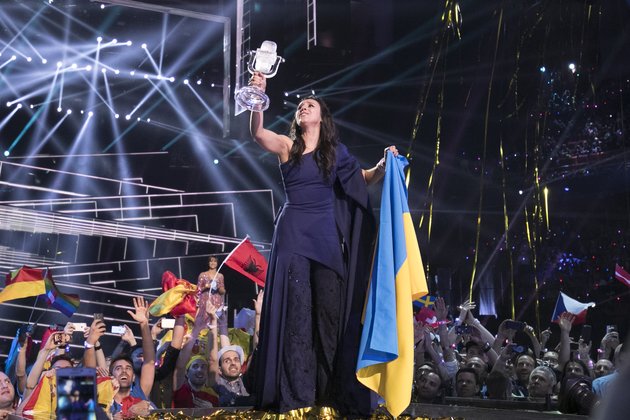-
Tips for becoming a good boxer - November 6, 2020
-
7 expert tips for making your hens night a memorable one - November 6, 2020
-
5 reasons to host your Christmas party on a cruise boat - November 6, 2020
-
What to do when you’re charged with a crime - November 6, 2020
-
Should you get one or multiple dogs? Here’s all you need to know - November 3, 2020
-
A Guide: How to Build Your Very Own Magic Mirror - February 14, 2019
-
Our Top Inspirational Baseball Stars - November 24, 2018
-
Five Tech Tools That Will Help You Turn Your Blog into a Business - November 24, 2018
-
How to Indulge on Vacation without Expanding Your Waist - November 9, 2018
-
5 Strategies for Businesses to Appeal to Today’s Increasingly Mobile-Crazed Customers - November 9, 2018
A Heavy Dose Of Glitter, Pyrotechnics and Politics At Eurovision 2016
Susana Jamaladinova, using the stage name Jamala, has won the 2016 Eurovision Song Contest and received the highest score for her song “1944”, a melancholic tune about the 1944 deportation of Crimean Tatars by Soviet authorities.in a vote from juries and TV viewers across Europe after the 26 finalists performed at Stockholm’s Globe arena.
Advertisement
They said Jamala’s song was “about her family members”, without offering further details.
The singer is an ethnic Tatar whose grandmother was among the deported, one of the reasons for the composition to make a metaphoric reference to Soviet abuses of the group in Crimea during the World War II.
The contest finished with Ukraine on top, Dami Im of Australia in second place and Russia’s Sergey Lazarev in third. Jamala got points through the SMS voting of the audience and a jury voting.
The song has resonance for contemporary Ukraine, where memories of that horror were revived by Russia’s seizure of Crimea, and Jamala’s poignant lyrics tell the story of a people with a history of persecution that continues to this day.
Jamala’s song had been criticized in Russia the moment its Eurovision submission was announced, with politicians and lawmakers calling it “politicized” and “anti-Russian”.
The 32-year-old victor is a member of the Muslim Tatar minority of Crimea who saw her great-grandmother deported along with 240,000 others by Stalin in the penultimate year of World War II.
“[If I win, ] it will mean that modern European people are not indifferent, and are ready to hear about the pain of other people and are ready to sympathise”, Jamala told the Guardian by phone from the Swedish capital shortly before the contest.
Jamala gained 534 points, pushing Russian Federation – odds-on favourite coming into the final – into third place.
But like it or not, anything linked to Crimea in Ukraine today has, at the very least, political overtones because Russia’s annexation of the peninsula remains an emotive topic and point of grievance for many Ukrainians. In an attempt to give the outcome a more democratic feel this year, fans were given the final say – adding some last-minute suspense.
Australia competed for the first time a year ago, taking part after accepting an invitation from organisers.
The song references the year when Stalin deported nearly all of the ethnic group from its native region of Crimea in what was then Soviet Russia (later to become part of Ukraine).
“I would prefer that all these bad things did not happen at all to my great-grandmother and I would even prefer this song not to exist”, she said. Last year’s event reached about 200 million viewers globally.
Meanwhile, Australia had led the way after the jury votes were revealed first under the new system. Sweden, which won in 2015 and hosted this year’s competition, came in fifth.
Advertisement
“Justice would be served if the next Eurovision is held in Jamala’s historical homeland – Ukraine’s Crimea”, Mustafa Nayyem tweeted.




























